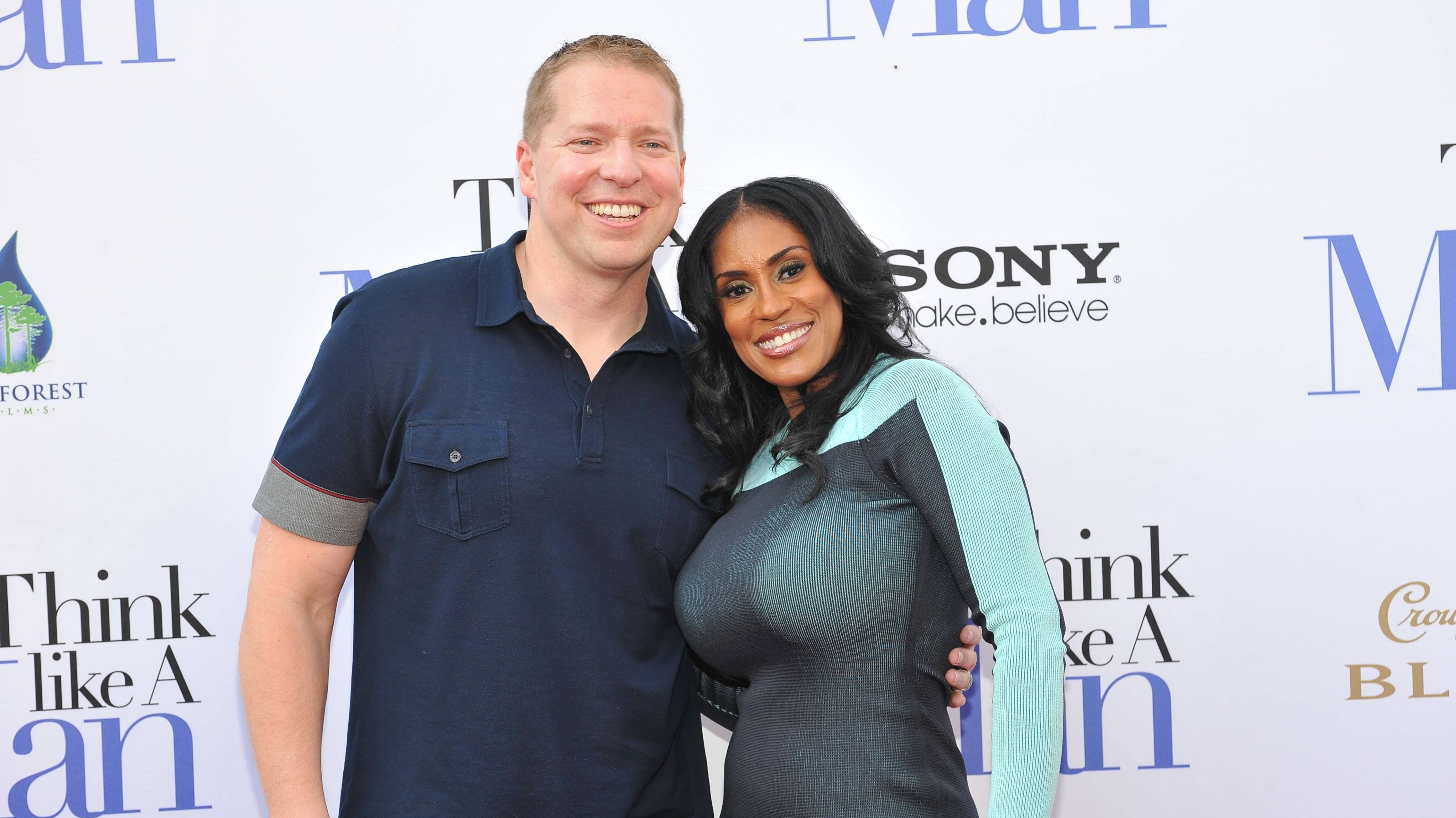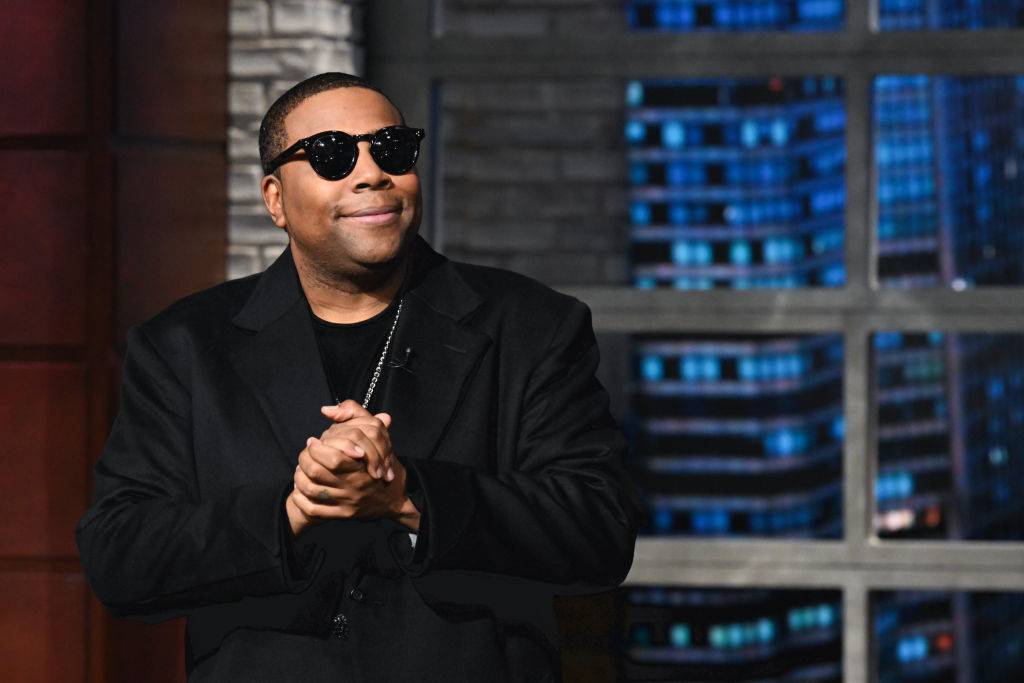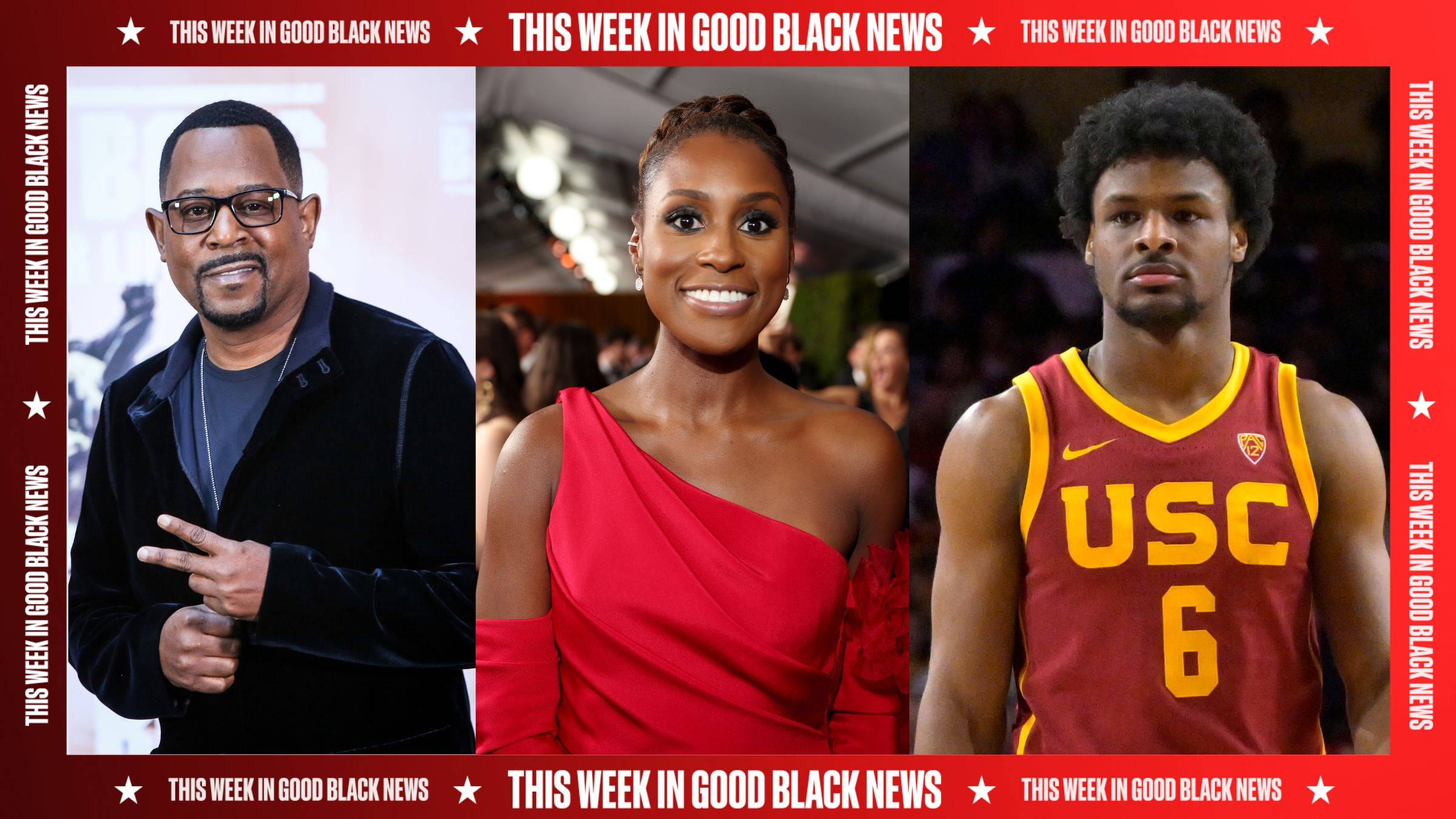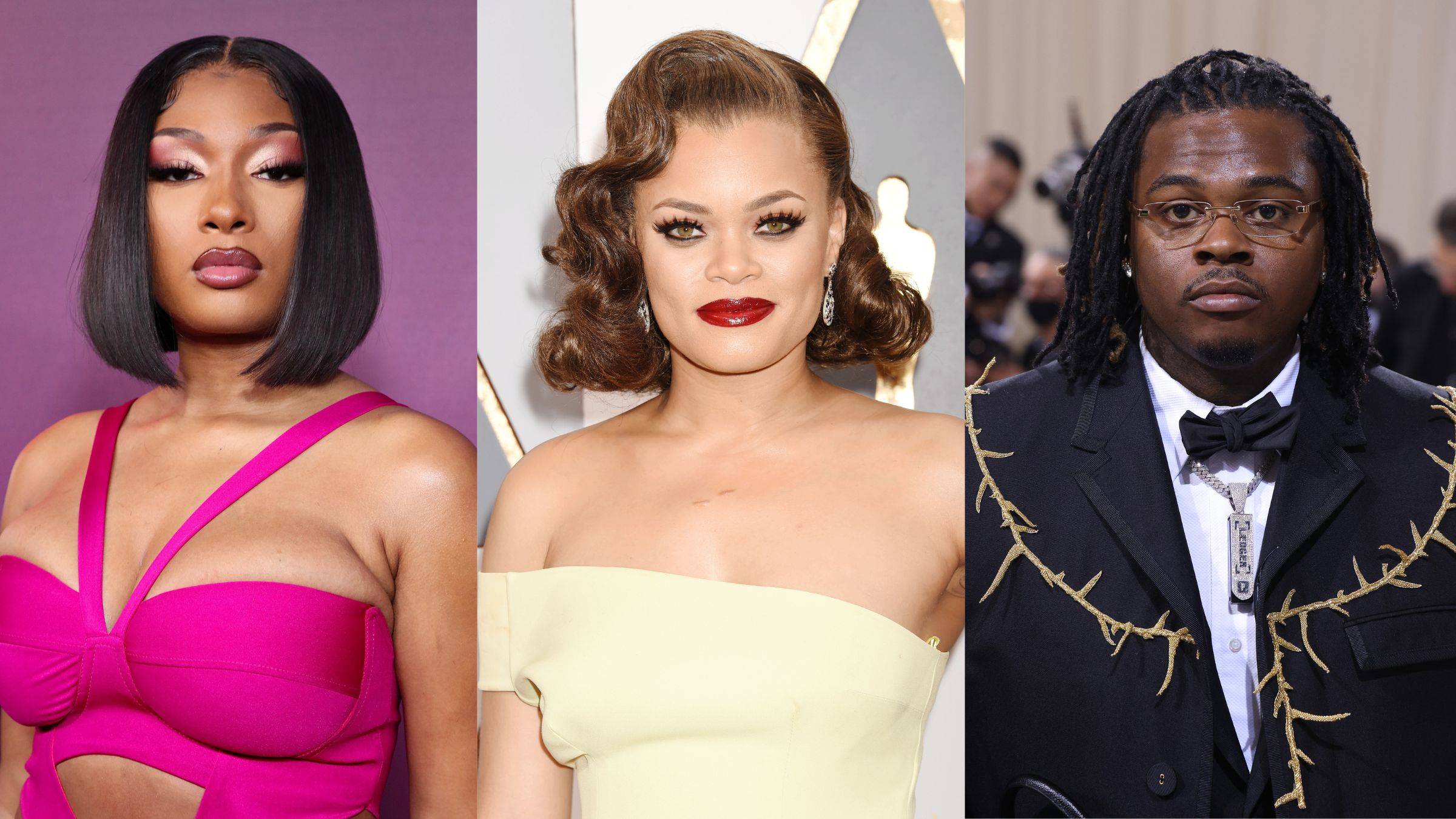Young Paris Brings a New Flavor of African Pride to Roc Nation

Roc Nation has a new face, and it’s adorned in African tribal paint.
Milandou Badila totes an origin story that blends cultures from three corners of the world. Born to Congolese parents, his father founded the National Ballet of Congo, and his mother was a dancer for the troupe in New York. The two met in Paris, where they had ten children – one of whom would later borrow his stage moniker from the French capital. After performing in a dance group with his siblings in the Congo, and his early upbringings in France, his family would settle back in New York, where the last of his foundation was cemented. Years later, Young Paris was born.
“I grew up with a very strong, traditional outlook on culture, whether it be the way we eat, the way we perform, the way we dance, how we represent ourselves as Central West Africans, Congolese,” he says.
Now taking on the task of fusing his palette to create Afro-centric art, the 27-year-old rapper/singer/producer fuses the pulsing sounds of Africa with hip-hop and EDM to bring his own brand of self-love to the world stage. Since crafting his sound with his 2014 project Rap | Electronic, Young Paris has been selected to perform at Arcade Fire’s KANPE KANAVAL, as well as the Parisian leg of the AFROPUNK Festival. His latest accomplishment finds him as a signee to the Jay Z-founded entertainment brand. The move solidifies his mission to bring his international vibes to the mainstream, which was initiated by his album, African Vogue. Tying in his roots with the times, Young Paris is ready to introduce his wave.
How does your connection to the Congo, Paris and New York equal the art that you put out now?
I get to travel a lot, to different parts of the world. For anyone who has the experience of traveling, when you touch a place, you kinda take a piece of it with you. So for me, the different dialects, different sounds, different ranges of my sound really come from the different places that I’ve been able to witness and the cultural background of my upbringing. So the traditional stuff comes from the African background. Then I have my EDM, hip-hop stuff happening today. So I try to mix – just make the most honest mix of the places that I’ve touched in the world. The stuff that I like.
What do you listen to? What are your musical influences?
A lot of African music. A lot of music of today. Basically that’s really all it touches on, really old music or really contemporary music. Not too much in the middle. But I grew up on hip-hop. Grew up on house music. Grew up on African music.
Your sound is such a vibe. How do you introduce your sound to someone who hasn’t quite gotten into it?
That’s kind of what’s interesting about what I’m doing now with this latest African Vogue project. ‘Cause in a way, when you’re trying to get people to understand the vibe that you’re addressing, you have to speak their language and it’s definitely like a language in hip-hop. There’s a language in house music. There’s a language of African music. So it’s like in a way, I’m able to rap on dance music. So when I’m rapping, you could hear the wordplay and you could hear like a masculine aggression in a way. At the same time, the music has a vibe to it of sounds that you’re familiar with. I used to be super art-driven and out there with my sound. As I become more and more of a person that sees the grander outlook on how you can touch more people musically, I try to like cater to patterns that are happening today. Like, ‘How I can put my little vibe on it?’
There’s a black pride aspect to your music that is coupled with this terrible state that we’re in, socially and politically. How do you hope that your music helps when it comes to all that stuff?
It’s interesting. I actually found a brand called Melanin and it got very popular off a series called #MelaninMondays. Essentially, every Monday we encourage people of color to showcase their beauty, their excellence. Now we’re gradually moving to websites and making it a fully functional brand as a side project. But as an African, I’m very proud of my upbringing and my culture. So I try to also push that cultural aspect and that sociological mindset in people’s heads when they realize. I feel like a lot of what’s happening today especially in Black America, people want to be associated with this African identity, but it’s hard to create that relationship. Hence another reason why I try to speak to their language, but also show them my pride at the same time. I think that the feeling of self-love is very important.
And your face painting’s a tribute to your father, right?
What I said briefly about my father’s story, one of the things that we do is embellish their face and their body with the paint, different colors for different reasons. And since my father passed four years ago, we wear white in homage to those who we lost. So I wear this pattern he gave me when I was a child and usually we were different colors for when we celebrate, but since he passed, it’s been like my way of carrying on tradition and paying homage to him. So usually if I’m doing photoshoots, or performing, I do my prayer and then I put it on. It’s just another way that also uses that self-love place where people can feel like they’re connected in a tribal platform. In Africa, we’ve always unified as tribes and I try to create our own tribe over here by unifying in this phase.
Talk to me about the title African Vogue and the concept behind the album.
African Vogue is just how Africans strut our identity on pop culture. I feel like Vogue is one of the most respected, fashionable brands of expression and what they compilate is genius, and I feel like Africans have a strong reason for why contemporary art is the way it is. African Vogue is where I’ve say, ‘This is where the shit started.’ This is how we strut our stuff. It goes back to you seeing the different dialects in the music and range – ‘cause you know African music has its range – from very slow to very fast. From ambient to very aggressive. I just like to play my little part, but constantly put that African stamp on everything that I’m doing.
Okay, and talk to me about your “Best of Me” single.
So, ‘Best of Me’ is kind of the melodic Young Paris and for me. I feel like everyone can relate to it. Anyone who gives energy can relate to the feeling of giving and not receiving the amount that you give. Whether it be through business, relationships or even friendships, I try to just touch on that figure of speech of when you’re just giving and someone’s literally removing all the good assets, literally just making you someone you don’t wanna be. In some ways, I touch on a relationship; I was in a past relationship where I felt like I was giving so much and this woman was literally making me the worst version of myself. I’m becoming jealous. I’m becoming insecure, and the imbalance in that relationship was just creating a tornado. So like I just wrote that song, based on that.
Now what is your songwriting process like? What inspires you to write a song and once you have an idea, how do you get it to a record?
Usually music. The music tells me what to say. But there’s other times when I’m constantly recording on my phone, like little snippets of things. I’ll be in an elevator and I’ll just get something and I’ll just put a little note in my phone, but usually like I sit with a good beat or I produce a lot of the music myself. So I start off with a drum beat, usually starts with the drums, I’m a drummer. And then I’ll send it off to the producer in like the Netherlands or something. Just add this kind of worldly vibe on it.
And I read somewhere that you’re inspired a lot by Fela [Kuti].
Yeah, Fela is like the original Afrobeat. So there’s Afrobeat and Afrobeats. The ‘s’ is like the new Afrobeat, which mixes Afro-Jazz, Afro-Pop, Afro-fusion. I feel like what [Fela] represents as an African and how bold he was – to hold onto that identity and still make music that makes people celebrate and love themselves – it’s another way of me carrying on that type of tradition. You know when you meet me and you’re around me, you really see how genuine I am to this culture. and I get a lot of that from his influence. ‘Cause if you really are a Fela fan, you know that he was just super African. The way that he left his legacy was genius.
And you are the latest signee to Roc Nation. How does that feel?
It’s dope. It’s real dope. I think they call it Roc Nation family for a reason. The first time I went to the office, everybody was warm, and I feel like it was just a really genuine relationship because my manager I’m working with now, he knew me for over a year without having any sort of business connection. And when I came in, it just felt very warming. I feel like if I was with a label situation, this is definitely where I feel like the ancestors, just life, has brought me. It’s just a family there and I’m a family person. Roc Nation definitely holds onto that family identity and then the success is just inevitable, so it’s kind of a win-win. But I haven’t met Jay yet.
What do you hope the future holds?
Just more music. More culture. Making more inspiration, just inspiring more people. I feel like my story has something that can help bring a lot of love to the world and I feel like through music and through the arts, we’re able to touch people’s lives. So like I just wanna keep creating.





